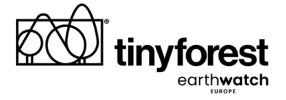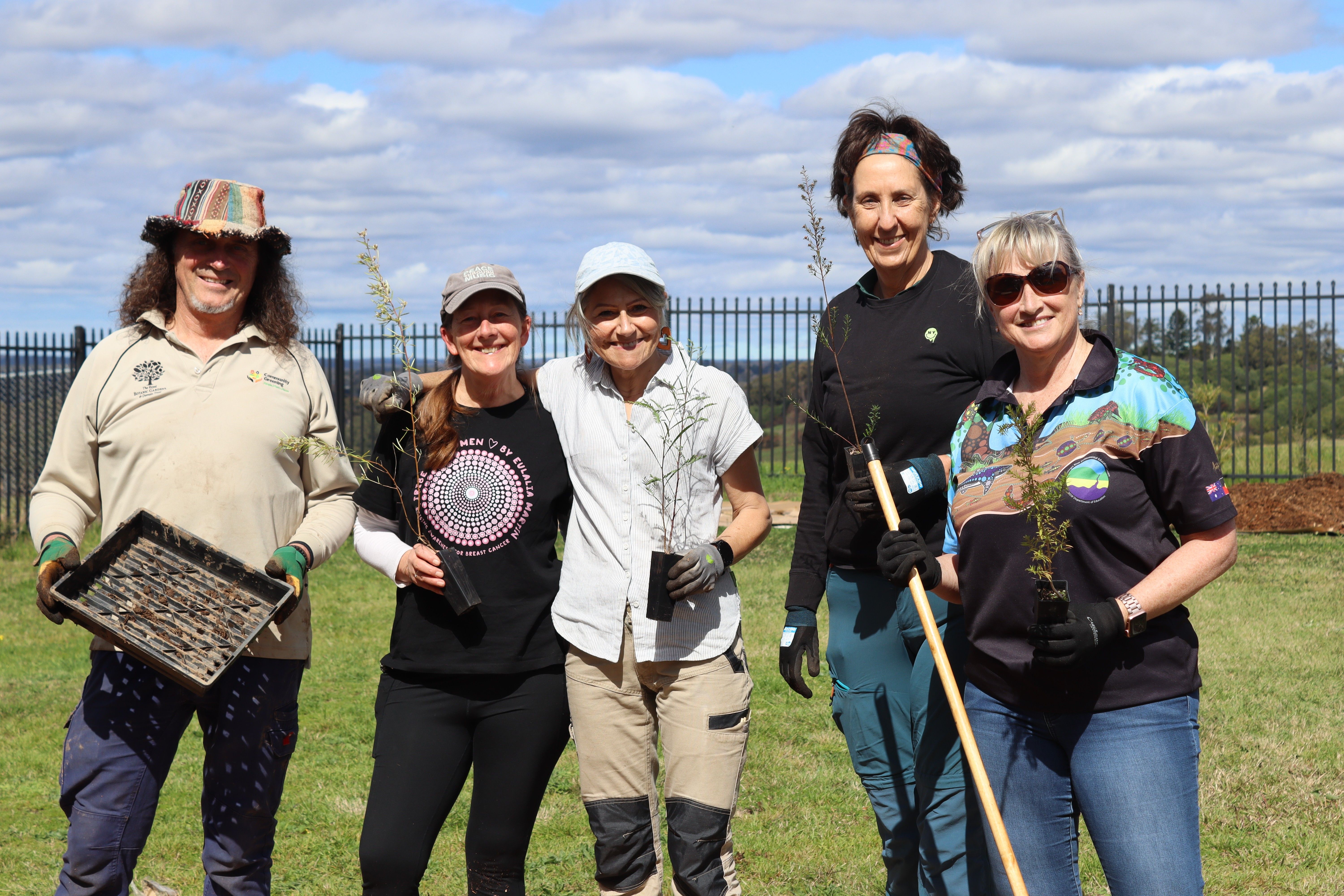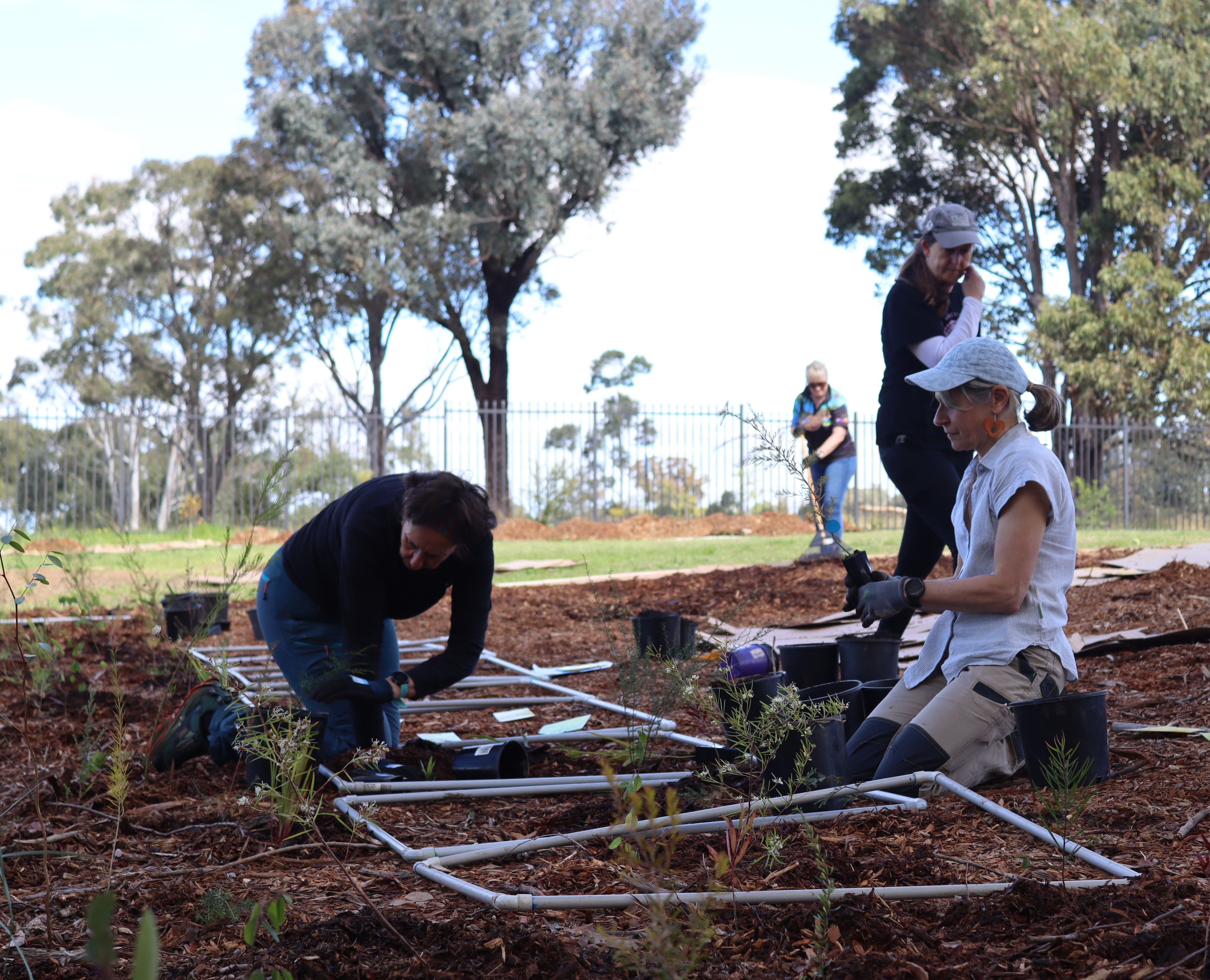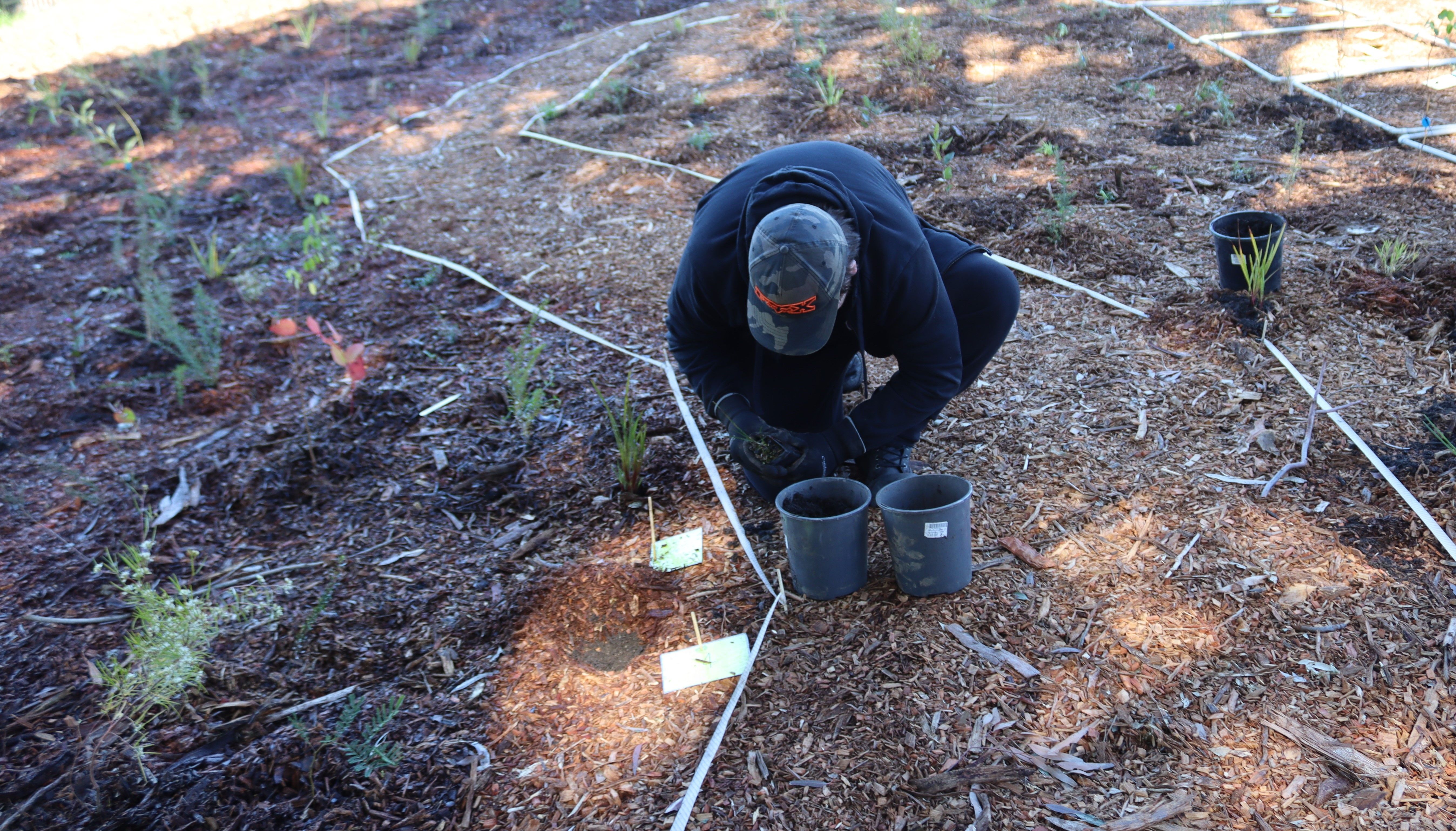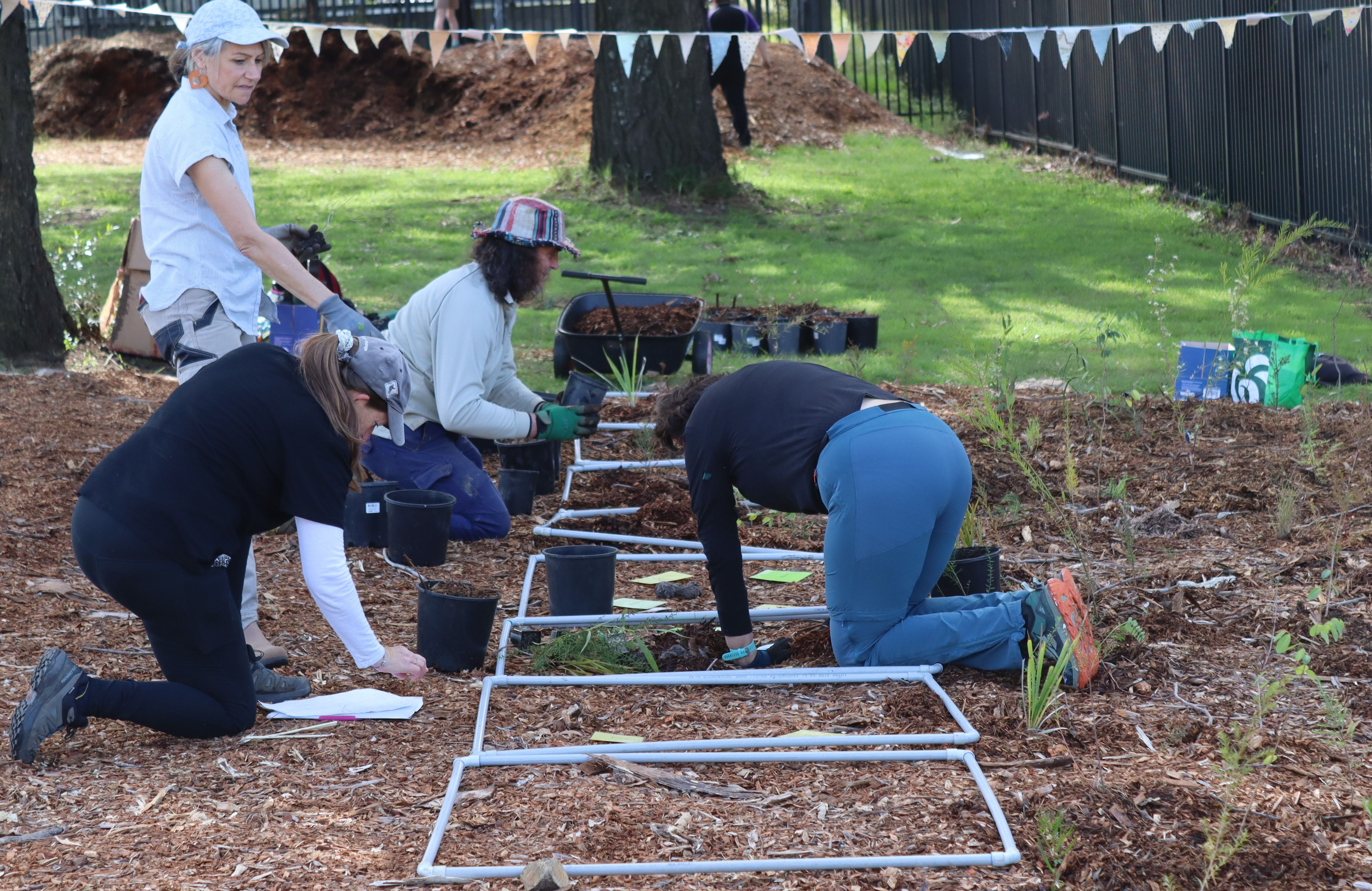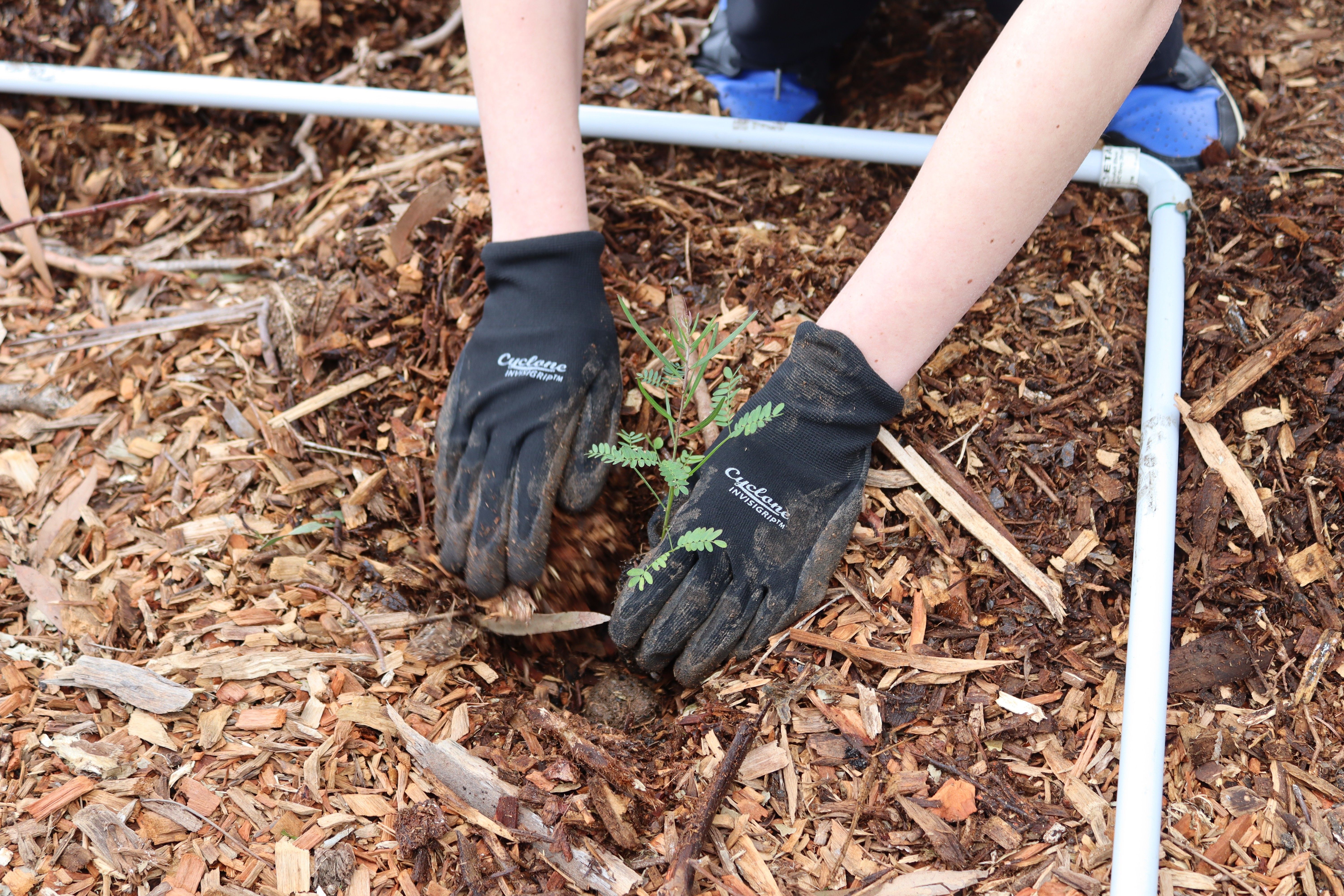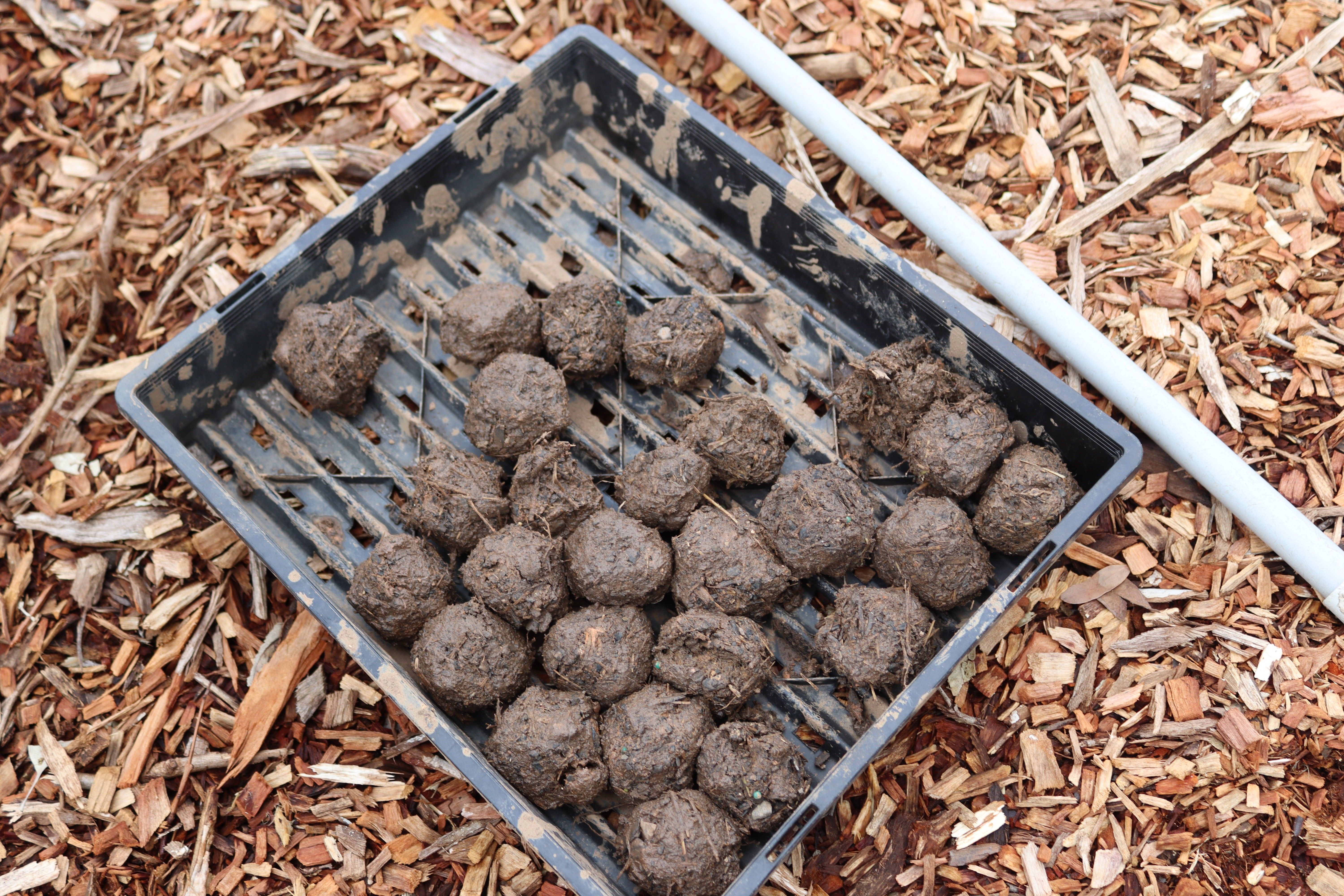Welcome to our Tiny Forest
In August 2025, the students and staff at Ajuga School came together to plant a Tiny Forest, a vibrant initiative in partnership with Earthwatch Australia, Campbelltown City Council, the Georges River Environmental Education Centre, and the Royal Botanic Gardens. This project includes a beautifully designed outdoor classroom, offering a natural setting where students can immerse themselves in meaningful learning experiences while enhancing their well-being. To enrich their understanding of the environment, a control forest was also established, allowing students to compare valuable data on plant growth and biodiversity.
The Tiny Forest was planted with species from the Cumberland Plain Woodland, a critically endangered ecological community that supports local biodiversity, such as the endangered Cumberland Plain Land Snail. The Ajuga School engaged the Royal Botanic Gardens of Sydney to cultivate indigenous microorganisms within a remnant stand of Cumberland Plain Woodland and then transplant the microorganisms into the Tiny Forest soil. The students from the Ajuga School worked with Royal Botanic Gardens staff to create nutrient balls for the Tiny Forest, which were made up of clay, native soil, organic manure, sugarcane mulch, and microorganisms. The benefits of planting microorganisms include improved plant health and growth, as well as increased soil moisture and water retention, which enhances the availability of nutrients to plants.
Be a Science Superhero
To access all our surveys and instructions on how to take part for this Tiny Forest, click the link to the left or scan the QR code with your mobile (each QR is unique to each forest). Find out more about Tiny Forest research
Citizen Science Surveys
0 Surveys Completed
View the total submitted surveys for this Tiny Forest.

0
Tree
Measurement
Measurement

0
Pollinators
Timed Count
Timed Count

0
Butterflies
Timed Count
Timed Count

0
Butterfly
Species
Species

0
Ground
Dwellers
Dwellers

0
Thermal
Comfort
Comfort

0
FM: Infiltration
Rate
Rate
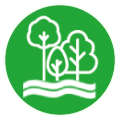
0
FM: Compaction
Colour & Texture
Colour & Texture
Help Needed: Become a Tree Keeper
Want to care for nature, connect with your community, and expand your skills? Support this Tiny Forest by becoming a volunteer Tree Keeper! Get involved in:
- Maintenance (weeding and litter picking in this Tiny Forest)
- Community Engagement (inspire local people to join in)
- Science (counting butterflies, measuring trees, and more!)
You decide the activities and how often to do them, either on your own or with fellow Tree Keepers. Earthwatch is here to support you every step of the way! Once you complete the signup form, you will be added to our regular communications with all the latest on Tiny Forests and how you can help. What are you waiting for...
Planting Information

Planted
By:
School Children

Planting
Date:
25 August 2025

Planted
Area:
200m2

Classroom
Area:
10m2

Featured
Pathways:
Yes

Tallest
Tree:
0 cm

Species Planted in the Forest:Barbed-wire Grass(Cymbopogon refractus) | Black Wattle(Acacia decurrens) | Blackthorn(Bursaria spinosa) | Blue Trumpet(Brunoniella australis) | Blueberry Lily(Dianella revoluta) | Broad-leaf Ironbark(Eucalyptus fibrosa) | Coffee bush(Breynia oblongifolia) | Eggs & Bacon(Dillwynia sieberi) | Forest red gum(Eucalytpus tereticornis) | Fringed Wattle(Acacia fimbriata) | Gossamer Wattle(Acacia floribunda) | Grey Box(Eucalyptus moluccana) | Hedgehog Grass(Echinopogon spp.) | Hickory wattle(Acacia implexa) | Kangaroo Grass(Themeda australis) | Narrow-leaved Bottlebrush(Callistemon linearis) | Narrow-leaved Ironbark(Eucalyptus crebra) | Native Gorse(Daviesia ulicifolia) | Native Indigo(Indigofera australis) | Prickly bush-pea(Pultenaea microphylla) | Prickly-leaved paperbark(Melaleuca nodosa) | Purple Coral-pea(Hardenbergia violacea) | Rice Flower(Ozothamnus diosmifolius) | Sickle Wattle(Acacia falcata) | Small-flower Grevillea(Grevillea parviflora) | Spiny-headed Mat-rush(Lomandra longifolia) | Spur Flower(Plectranthus parvifolius) | Threeawn Speargrass(Aristida vagan) | Tick Bush(Kunzea ambigua) | Tussock Grass(Poa affinis) | Weeping Grass(Microlaena stipoides) | White Feather Honeymyrtle(Melaleuca decora) | Whiteroot(Lobelia purpurascens) | Winter Apple(Eremophila debilis)
Funded By:




Tiny Forest Location:
- Ajuga School
- Roy Watts and Quarter Sessions Rd
- Glenfield
- Sydney
- 2167
- Australia
-
GPS: -33.9702,150.8788
-
Antonina Fieni
This email address is being protected from spambots. You need JavaScript enabled to view it.
Landowner(s):

